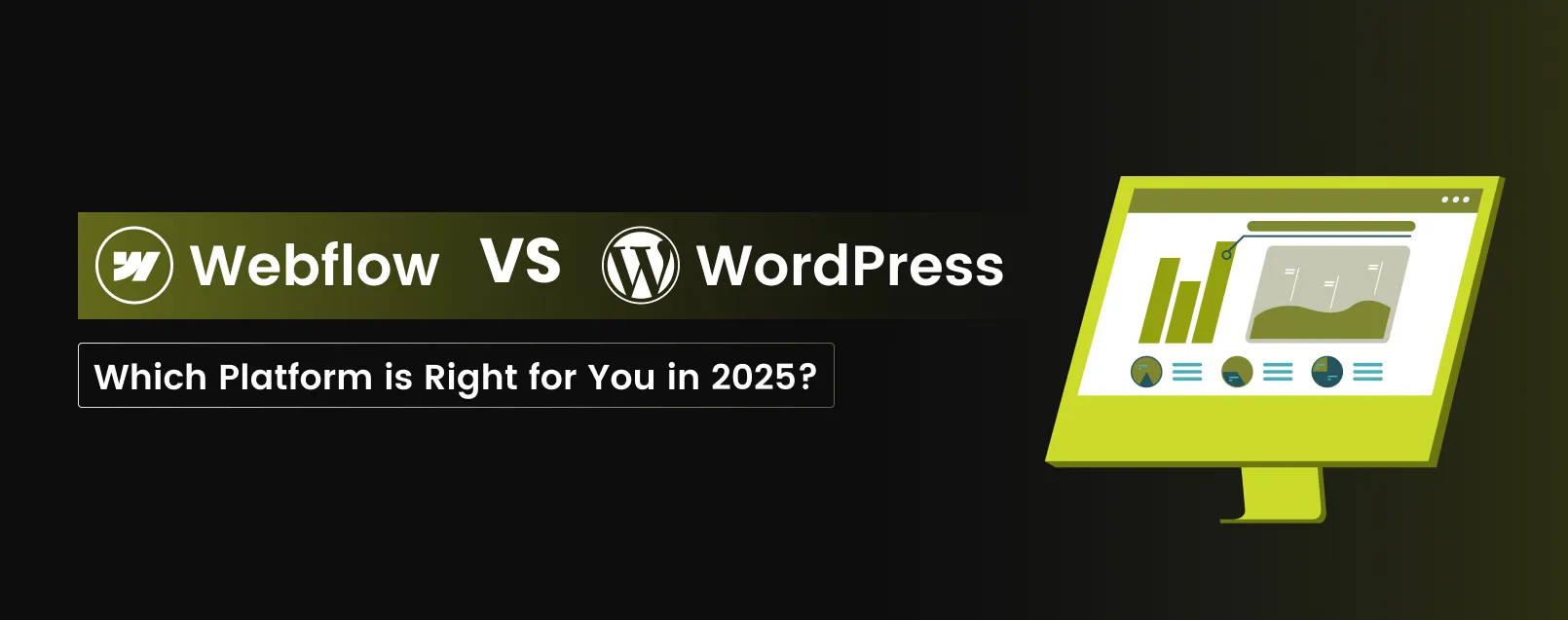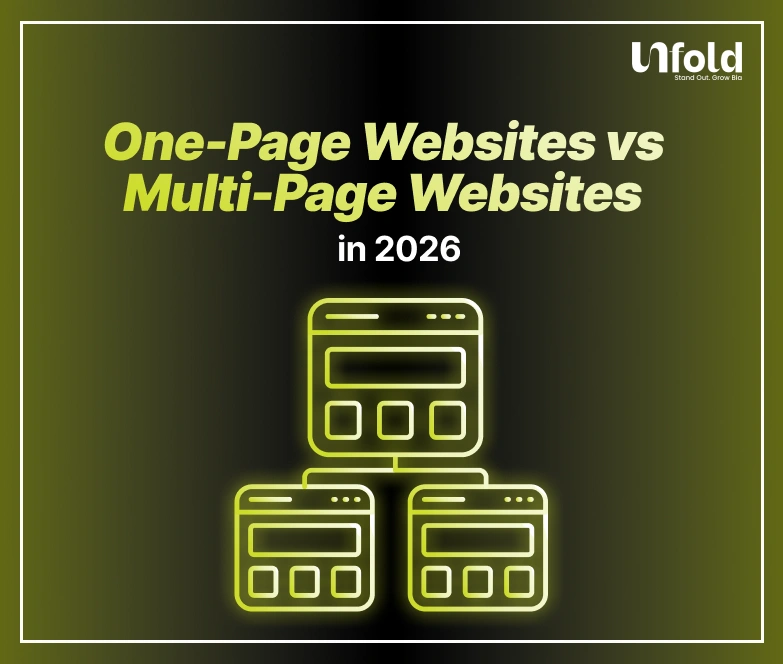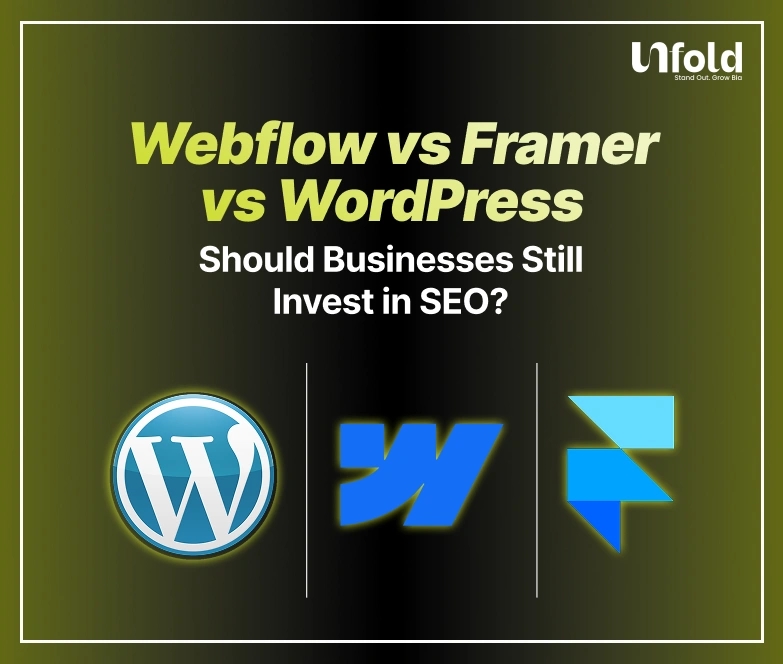

Webflow vs WordPress: Which Platform Should You Choose in 2025?

Choosing the right platform to build your website is critical to the success of your business. Whether you are a startup, an agency, or an established brand, the Webflow vs WordPress debate is a decision that every entrepreneur and marketing team must face.
In this guide, we will break down the key differences between Webflow and WordPress, and help you decide which platform is best for your business in 2025 - whether you’re operating in India, USA, Germany, France, or the UAE.
Quick Overview: Webflow vs WordPress
What is Webflow?
Webflow is a no-code platform that enables users to design, build, and launch responsive websites without any coding experience. It integrates design, development, CMS, and hosting features, making it a one-stop solution for businesses that need a high-performing site.
Webflow is especially popular among:
- Design agencies seeking pixel-perfect control
- Startups that want modern, scalable websites
- E-commerce and SaaS companies focused on performance
What is WordPress?
WordPress is an open-source CMS that powers more than 40% of websites globally. It’s known for its flexibility, extensive plugin ecosystem, and developer support, making it ideal for businesses that require customization or need third-party integrations.
In many countries, WordPress is the preferred platform for:
- Content-heavy websites (blogs, news portals)
- E-commerce stores (via WooCommerce)
- Custom web applications with complex needs
Key Considerations for Businesses Across Different Regions
1. Performance and Core Web Vitals
Performance is key for user experience and SEO in India, USA, Germany, France, and UAE. Google’s Core Web Vitals—which evaluate site speed, interactivity, and visual stability—are essential for ranking.
- Webflow comes with built-in performance optimizations, including CDN-backed hosting, automatic image compression, and fast page loads.
- WordPress can be optimized for performance with caching plugins, content delivery networks, and proper hosting configuration, but it requires ongoing maintenance.
Verdict: Webflow offers out-of-the-box performance benefits that are ideal for businesses that want fast, reliable websites without manual optimization.
2. SEO Optimization
For businesses operating in India, USA, Germany, France, and UAE, ranking well on Google is crucial. Both Webflow and WordPress offer SEO tools, but in different ways.
- Webflow offers native SEO tools: clean code, built-in schema markup, and customizable metadata for each page. This makes it easy to manage SEO with minimal technical knowledge.
- WordPress uses third-party plugins like Yoast or RankMath to handle SEO. While these plugins offer robust features, they require updates and can slow down your site if not configured properly.
Verdict: Webflow is the easier option for businesses that want SEO performance with minimal maintenance, while WordPress is better for those needing more granular control.
3. Design Flexibility and User Experience
The user experience (UX) and design of your website are critical for building trust and converting visitors into customers.
- Webflow offers unmatched design flexibility with its visual, no-code builder. You have full control over every detail, from layouts to interactions and animations, without writing any code.
- WordPress relies on themes for design. While themes can be customized, they may require extensive development work, and updates to themes or plugins can break your design.
Verdict: For businesses that need unique, high-end designs with minimal coding, Webflow is the preferred choice. WordPress works well for simpler designs or when using pre-built themes.
4. Security and Data Compliance
Data protection is particularly important for businesses operating in regions like Germany and the UAE, where GDPR and local data protection laws apply.
- Webflow includes SSL, GDPR-compliant hosting, and automatic security updates, making it easier to ensure compliance.
- WordPress requires additional plugins and manual setup to handle GDPR compliance and security. This can add extra complexity and maintenance.
Verdict: Webflow simplifies GDPR compliance and security, making it a more secure choice for businesses in Europe and the UAE, especially those without dedicated tech teams.
5. Developer Availability in Different Markets
The availability of developers varies across regions. While WordPress developers are abundant, Webflow has seen increasing adoption in design and marketing agencies due to its no-code approach.
- WordPress is often the preferred platform for complex, custom solutions, and businesses that require ongoing development support.
- Webflow is perfect for businesses that want to reduce their dependency on developers and focus on quick iterations.
Verdict: WordPress is better for large enterprises and custom web applications, while Webflow is ideal for smaller, design-driven teams that prefer autonomy.
Real-World Use Cases Across Countries
At UnFoldMart, we’ve worked with brands from India, USA, Germany, France, and the UAE, delivering results across both platforms.
Atmosly (Webflow)
For Atmosly, a U.S.-based SaaS company, we built a scalable, high-performance website using Webflow. Webflow’s ability to handle complex product data and custom animations made it a perfect fit for their tech-savvy audience.
Wishlink (Webflow)
We created a Wishlink site for an Indian fashion-tech startup, leveraging Webflow’s design capabilities to create an interactive, visually stunning platform that attracted influencer partnerships and improved conversions.
SquareOps (WordPress)
For SquareOps, an India startup, we built a content-driven website on WordPress, focusing on long-form content and technical documentation. While WordPress worked well for content management, it required ongoing updates and plugin optimizations.
Cost Comparison for Businesses in Different Regions
Verdict: Webflow offers predictable pricing and reduces hidden costs (like plugins and updates), while WordPress can be cheaper initially but incurs additional costs for maintenance and customization.
CMS and Content Workflows
- Webflow’s CMS works best for businesses that need flexibility in managing product pages, case studies, and marketing content, without worrying about plugins or backend complexity.
- WordPress excels with content-heavy websites that require complex editorial workflows (e.g., multi-author blogs, memberships).
Verdict: For marketing-first websites with structured content, Webflow is ideal. For businesses with large-scale publishing needs, WordPress is better.
Maintenance and Scalability
- Webflow handles all maintenance for you. There are no plugins to update, no servers to manage, and no downtime during scaling.
- WordPress requires ongoing updates to plugins, themes, and security patches. While it’s highly scalable, WordPress needs a dedicated team to manage growth.
Verdict: Webflow is a better option for businesses that want to avoid the complexity of plugin management and hosting issues.
Which Platform Should You Choose?
For most global businesses, Webflow is the best platform for its speed, design flexibility, and ease of use. It’s ideal for businesses looking to scale quickly without relying heavily on developers.
WordPress is better for businesses that need complex backend customization, extensive content management, or rely on third-party integrations.
Build Your Website the Right Way
At UnFoldMart, we specialize in building high-performance websites on both Webflow and WordPress. Whether you need a modern Webflow site or a customized WordPress platform, we’ve got the expertise to deliver results.
Explore our portfolio and book a free consultation to discuss how we can help you grow your business online.
FAQs
Got Questions? We’ve Got Answers – Clear, Simple, and Straight to the Point
Yes, Webflow supports blogging, but WordPress has more advanced blogging features (e.g., comments, content management).
Yes. We offer full migration services to retain SEO value and smoothly transition your content from WordPress to Webflow.
Webflow’s all-in-one pricing is predictable, while WordPress can appear cheaper at first but incurs hidden costs for hosting, plugins, and maintenance.
Webflow is more SEO-friendly out-of-the-box with fast load speeds, clean code, and built-in optimization. WordPress requires plugins but offers more granular control.
Yes. Webflow’s fast, secure, and customizable platform is ideal for businesses in India, USA, Germany, France, and UAE.
Still have questions?
No question is too small—let’s talk

Want to Turn Your Brand Into a Scalable Growth Engine?
We help modern businesses unify branding, websites, SEO, and paid media into one performance-driven system designed to scale.





